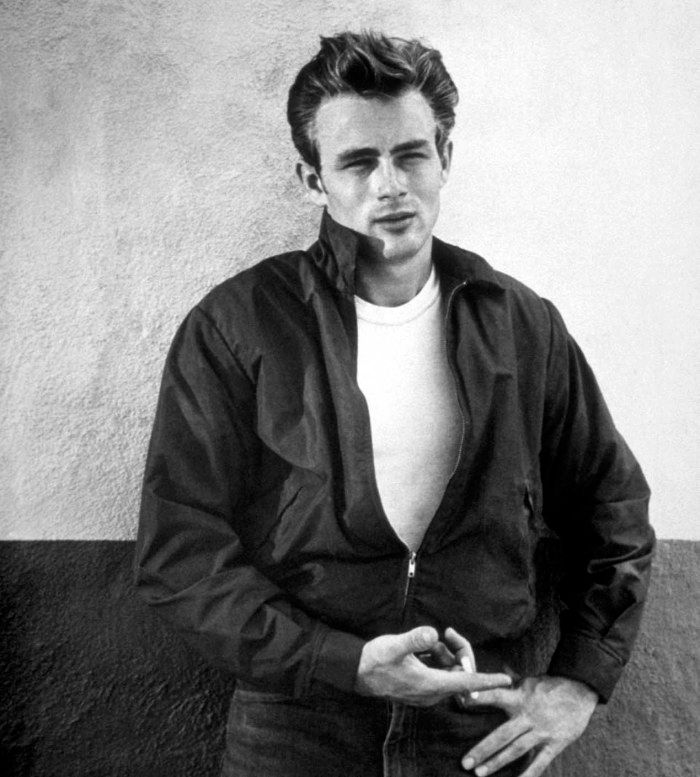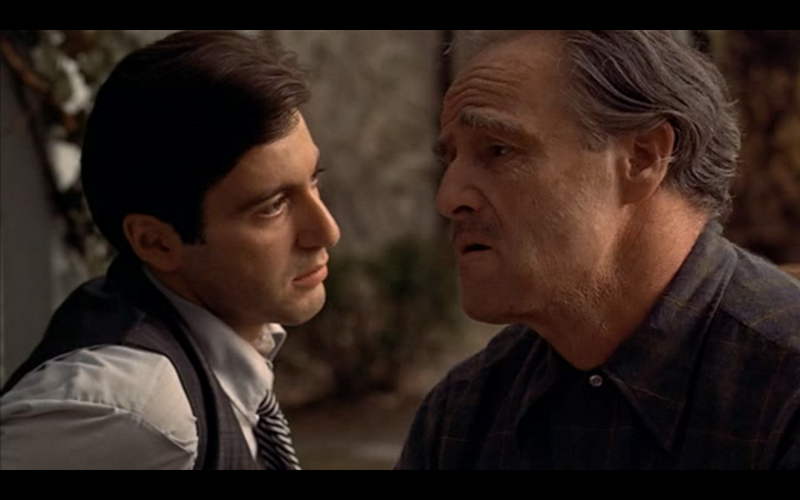
The Academy Awards are the pinnacle of cinematic achievement, a night of glittering gowns, emotional speeches, and dreams coming true. For many actors, a golden statuette represents the culmination of a lifelong dedication to their craft, a moment to bask in the spotlight and celebrate their triumph. But what happens when that moment arrives after the final curtain has already fallen?
It’s a rare and poignant twist of fate when an actor’s most acclaimed performance is recognized posthumously. The applause rings out, the name is called, but the recipient is no longer there to accept the honor. These instances transform a celebration into a deeply moving tribute, a testament to talent so profound it transcends life itself. It reminds us that art truly is immortal, leaving an indelible mark on the world long after its creators have departed.
In the storied history of the Oscars, a select few actors have achieved this unique and bittersweet honor. Their performances, so powerful and memorable, continued to resonate with critics and audiences alike, earning them nominations and even wins from beyond the grave. Join us as we explore the incredible stories of eight such actors, starting with those who made some of the most significant impacts on the Academy’s history, proving that true brilliance knows no bounds, not even death.

1. **Peter Finch: The Trailblazing Posthumous Winner**When the nominations for the 49th Academy Awards were announced in 1977, the Best Actor category was packed with powerhouse performances. Robert De Niro for “Taxi Driver,” William Holden for “Network,” and Sylvester Stallone for his breakout role in “Rocky” were all vying for the golden statuette. But the eventual winner was an actor whose journey had already concluded, making cinematic history in the most somber yet profound way. Peter Finch, for his unforgettable portrayal of the unhinged TV personality Howard Beale in “Network,” became the first actor ever to win a posthumous Oscar.
Finch’s performance in “Network” was nothing short of electrifying. He brought to life a news anchor who, after being fired, declares on air, “I’m mad as hell, and I’m not going to take it anymore!” This iconic line and his character’s unraveling resonated deeply with audiences, capturing the zeitgeist of the era and cementing his place in film lore. It was a role that demanded immense vulnerability and a searing intensity, which Finch delivered with masterful precision, leaving a performance that continues to be studied and admired decades later.
Tragically, Finch would not live to see the ceremony where his groundbreaking achievement was recognized. While promoting “Network,” he appeared on “The Tonight Show With Johnny Carson.” Shortly afterward, on January 14, 1977, at the age of 60, he suffered a heart attack in the lobby of the Beverly Hills Hotel and passed away. His death came just two weeks before he also won a Golden Globe for Best Actor in a Motion Picture Drama for “Network,” making him the first actor to win that award posthumously as well. The Golden Globes ceremony was held on January 29, just days after his passing.
The news of his win at the Oscars sent a ripple through the audience. Sylvester Stallone, a formidable competitor that year, reportedly looked flabbergasted, seemingly put off that his own breakout role in “Rocky” hadn’t secured the award. It was a moment of mixed emotions – sadness for his loss, but immense pride in his monumental achievement. Finch’s widow, Eletha, along with screenwriter Paddy Chayefsky, accepted the award on his behalf. Eletha’s acceptance speech, where she conveyed that her husband primarily would’ve thanked her, saying, “And most of all, thanks to you, darling, for sending the right vibes in the right way,” added a personal and touching layer to the historical win. Finch’s legacy is not just in his exceptional acting, but in setting a precedent for recognizing artistic brilliance that transcends the boundaries of life itself.

2. **Heath Ledger: The Youngest to Achieve Posthumous Glory**Years after Peter Finch paved the way, the Academy once again faced the poignant task of honoring an actor whose life had been tragically cut short. This time, it was for a performance so utterly transformative and chilling that it captivated the world: Heath Ledger as The Joker in Christopher Nolan’s “The Dark Knight.” Ledger, at just 28 years old, became the youngest posthumous Academy Award winner and only the second actor to receive an acting prize after his death, solidifying his status as a legendary talent gone too soon.
Ledger’s portrayal of the iconic villain was revolutionary. He delved deep into the character’s psyche, creating a chaotic and anarchic figure that redefined how comic book villains could be depicted on screen. The performance earned him widespread critical acclaim, with many calling it the definitive portrayal of The Joker. He pushed boundaries, embraced the darkness, and delivered a masterclass in acting that left audiences both thrilled and profoundly unsettled. It was a role that solidified his transition from a rising star in teen comedies like “10 Things I Hate About You” to an acclaimed dramatic actor, having already garnered his first Oscar nomination for “Brokeback Mountain” in 2006.
The tragic news of Ledger’s passing on January 22, 2008, from a drug overdose at his Soho home, sent shockwaves across the globe. He died after completing his scenes for “The Dark Knight” but before the film had been fully completed or even released, and a full year before the Oscar nominations were announced. The film itself became a cultural phenomenon, in part due to his breathtaking performance, adding another layer of melancholy and myth to his already burgeoning legend.
When the 81st Academy Awards arrived in 2009, there was a palpable sense that Ledger was destined to win. And indeed, he did. His father, mother, and sister accepted the Best Supporting Actor award on his behalf, delivering a heartfelt tribute to his generous soul and the excitement and inspiration he brought to their lives. His mother, Sally, beautifully articulated their feelings, saying, “Heath was such a compassionate and generous soul, who added so much excitement and inspiration to our lives. Tonight we are choosing to celebrate and be happy for what he has achieved.” His “Dark Knight” costar Gary Oldman accepted the SAG award for him, and director Christopher Nolan accepted the Golden Globe, further cementing the industry’s collective recognition of his extraordinary talent and the profound void his absence left.

3. **James Dean: The Eternal Rebel, Twice Recognized**In the annals of Hollywood, few stars burn as brightly, yet as briefly, as James Dean. His impact on cinema and pop culture in a mere three films is unparalleled, and his tragic death at a young age only amplified his legendary status. What makes his story even more extraordinary is that he holds a unique record in Academy Awards history: James Dean is the only performer to ever receive two posthumous Oscar nominations, cementing his iconic status even after his untimely passing.
Dean’s meteoric rise to fame was nothing short of cinematic itself. He captivated audiences with his raw vulnerability and intense charisma, particularly in his role as Cal Trask in Elia Kazan’s 1955 film “East of Eden.” This performance immediately marked him as a talent unlike any other, capturing the angst and rebellion of a generation. Just a month after the release of “Rebel Without a Cause,” which would become another defining film of his career, Dean tragically died in a car crash in California on September 30, 1955, at the incredibly young age of 24.
Despite his sudden departure, his influence continued to grow, and his performances continued to resonate. He earned his first posthumous nomination for Best Actor at the 28th Academy Awards in 1956 for “East of Eden.” The following year, his power on screen was recognized yet again, with a second posthumous Best Actor nomination at the 29th Academy Awards in 1957, this time for his role as Jett Rink in George Stevens’ “Giant.” To achieve two such nominations from only three major film roles is an astonishing feat, highlighting the immense depth and promise he displayed in his brief career.
While he didn’t win either award – he lost for “East of Eden” and again for “Giant” – his dual nominations underscored the industry’s profound respect for his talent. These recognitions solidified his place not just as a heartthrob or a cultural icon, but as a truly gifted actor whose contributions, though few, were monumental. Dean’s legacy continues to inspire, a timeless symbol of youthful rebellion and artistic genius, forever immortalized on screen and in the unique distinction of his posthumous Oscar acknowledgments. He also received a special achievement award at the Golden Globes the year after his death in 1955 for “East of Eden,” further proving the widespread impact of his work.

4. **Chadwick Boseman: A Legacy Honored in Modern Times**In recent memory, few posthumous recognitions have been as deeply felt and widely celebrated as those for Chadwick Boseman. The actor, beloved for his powerful portrayals and inspiring presence, tragically passed away in 2020, yet his final performance in “Ma Rainey’s Black Bottom” proved to be a fitting and profound testament to his unparalleled talent. His nomination for Best Actor at the 93rd Academy Awards in 2021 was not only a moment of profound remembrance but also a historic one, as he became the first black actor to posthumously receive an Oscar nomination in an acting category.
Boseman’s role as Levee Green in George C. Wolfe’s “Ma Rainey’s Black Bottom” was a tour de force. He delivered a performance filled with raw emotion, complexity, and a captivating intensity that left critics and audiences spellbound. Playing an ambitious and tormented trumpeter in 1920s Chicago, Boseman poured his heart and soul into the character, delivering monologues that were both heartbreaking and electrifying. It was a performance that captured the essence of a man struggling against systemic injustice, and it became an instant highlight of his already stellar career.
What makes Boseman’s achievement even more poignant is that he filmed “Ma Rainey’s Black Bottom” while secretly battling colon cancer. His dedication to his craft, even amidst such a personal struggle, speaks volumes about his character and commitment. He passed away on August 28, 2020, at the age of 43, leaving behind a legacy that extended far beyond his memorable roles as King T’Challa in “Black Panther” or Jackie Robinson in “42.” His final film became a powerful capstone, showcasing the incredible depth he possessed as an artist.
Boseman dominated the 2021 awards show season, earning numerous trophies for his “Ma Rainey’s Black Bottom” performance from critics’ groups, a SAG Award, and a Golden Globe. The industry rallied to honor his incredible work, and while he did not ultimately win the Oscar, his nomination and the collective recognition he received were a powerful affirmation of his enduring impact. His wife, Taylor Simone Ledward, accepted his SAG and Golden Globe awards on his behalf, delivering moving speeches that honored his spirit and his belief in the power of storytelling. Chadwick Boseman’s posthumous recognition stands as a modern touchstone, a powerful reminder of a talent lost too soon but never forgotten.
Continuing our journey through the annals of Hollywood’s most heartfelt tributes, we delve into more remarkable stories of performers whose talent echoed beyond their final days, securing them a place in Academy history. These individuals, through their compelling work, reminded us that true artistic expression can truly be immortal, touching hearts and minds long after they’re gone.
Read more about: The Haunting Echoes: Unveiling the Final Written Words of Beloved Celebrities

5. **Spencer Tracy: A Legend’s Final, Poignant Performance**Few actors command the respect and admiration that Spencer Tracy did throughout his illustrious career. A true titan of Hollywood’s Golden Age, Tracy delivered consistently powerful and nuanced performances, earning him a reputation as one of cinema’s most reliable and revered stars. It’s fitting, then, that his final appearance on screen would be in a film of such cultural significance, one that would earn him a posthumous Academy Award nomination and further cement his legendary status.
Tracy’s swan song came in Stanley Kramer’s groundbreaking 1967 film, “Guess Who’s Coming to Dinner.” In this progressive drama, Tracy played Matt Drayton, a role that saw him grapple with societal prejudices and personal beliefs, delivering a performance brimming with his characteristic integrity and emotional depth. The film itself was a bold statement, tackling issues of race and acceptance at a pivotal moment in American history, and Tracy’s presence anchored its powerful message.
Tragically, Spencer Tracy would not live to see the film’s release, nor the subsequent accolades it would garner. He passed away at the age of 67 on June 10, 1967, just a few weeks after completing his work on “Guess Who’s Coming to Dinner.” This made his nomination for Best Actor at the 1968 Academy Awards a profoundly bittersweet moment, a final, poignant acknowledgment of his enduring brilliance and the incredible impact he had on the cinematic landscape. It was a nomination that celebrated a career defined by integrity, talent, and an unwavering commitment to his craft.
Though he did not win the Oscar that year, Tracy’s posthumous nomination underscored the Academy’s deep respect for his immense contributions. It served as a powerful reminder of an actor whose presence could elevate any story, leaving audiences with unforgettable characters. His final performance, imbued with the wisdom and gravitas of a lifetime dedicated to acting, became a moving capstone to a career that will forever be etched in Hollywood history.
6. **Ralph Richardson: The First in a Supporting Role**Sir Ralph Richardson was a name synonymous with theatrical and cinematic excellence, known for his distinguished career spanning decades on both stage and screen. With a reputation for his commanding presence and versatile acting, Richardson was a true luminary. His place in Oscar history is particularly significant, as he achieved a unique distinction that paved the way for future posthumous recognitions in a crucial category.
Richardson became the first actor to receive a posthumous nomination in the Best Supporting Actor category. This remarkable achievement was for his role as The Sixth Earl of Greystoke in Hugh Hudson’s 1984 film, “Greystoke: The Legend of Tarzan, Lord of the Apes.” His performance in the film, released after his passing, showcased the depth and gravitas he brought to every character, even in a supporting capacity, proving that a brilliant performance can indeed capture critical attention regardless of the actor’s presence.
Sadly, Richardson died on October 10, 1983, at the age of 80, before the film’s release and well before the 57th Academy Awards ceremony in 1985 where his nomination was announced. His passing marked the end of an era for many who had followed his long and celebrated career. Yet, this posthumous nod served as a fitting tribute, acknowledging the immense talent of an actor whose contributions enriched countless productions, and whose final on-screen portrayal continued to captivate.
His nomination for “Greystoke” highlighted the Academy’s commitment to recognizing exceptional acting, regardless of circumstance. It was a powerful statement, celebrating not just a single performance, but the entirety of a distinguished career that had left an indelible mark on the performing arts. Ralph Richardson’s legacy, therefore, lives on not only in his extensive filmography but also in his pioneering status as the first posthumous Best Supporting Actor nominee.
Read more about: Sir Michael Gambon, the Distinguished Actor Who Enchanted Audiences as Dumbledore, Dies at 82: A Legacy of Stage and Screen Mastery

7. **Massimo Troisi: A Passionate Farewell in ‘Il Postino’**Massimo Troisi, the acclaimed Italian actor, comedian, and director, was a beloved figure in his home country and gained international recognition for his unique blend of humor and poignant storytelling. His career was marked by a distinct artistic voice, often infused with a deep sense of humanism. It was his final, passionate performance, however, that would etch his name into the bittersweet annals of Oscar history, showcasing a profound talent that was tragically cut short.
Troisi’s magnum opus was undoubtedly “Il Postino (The Postman),” the 1995 film directed by Michael Radford. In a role that resonated deeply with his own artistic sensibilities, Troisi delivered a moving portrayal of Mario Ruoppolo, a simple postman whose life is transformed by his friendship with the exiled Chilean poet Pablo Neruda. His performance was lauded for its authenticity, warmth, and profound emotional depth, capturing the hearts of audiences and critics worldwide. It was truly the culmination of his artistic journey.
What makes Troisi’s story particularly heartbreaking and inspiring is that he poured his heart and soul into “Il Postino” while battling a serious heart condition. He completed filming just one day before his untimely death. He passed away on June 4, 1994, at the incredibly young age of 41, leaving behind a film that became an international sensation and a poignant final testament to his unwavering dedication to his craft. His commitment to the project, even in the face of his failing health, speaks volumes about his passion for storytelling.
In a rare and truly remarkable turn of events, Massimo Troisi received not one, but two posthumous Academy Award nominations at the 68th ceremony in 1995 for “Il Postino.” He was nominated for Best Actor for his captivating performance, and also for Best Writing (Adapted Screenplay), acknowledging his significant contribution to the film’s powerful narrative. This dual recognition underscored the breadth of his talent as both a performer and a storyteller, a testament to his profound impact on the film’s success and enduring appeal.
Though he was not there to accept the honors, his dual nominations for “Il Postino” elevated the film to an international classic and solidified Troisi’s legacy as a brilliant and multifaceted artist. His work, especially in this final film, continues to inspire, reminding us of the fragility of life and the enduring power of art to transcend mortality, capturing moments of human connection that resonate across generations and cultures.
As we close the curtain on these extraordinary stories, one thing becomes crystal clear: the magic of cinema and the brilliance of its artists truly transcend the boundaries of life itself. These actors, through their unforgettable performances, left an indelible mark on our collective consciousness, reminding us that art, in its purest form, is eternal. Their legacies continue to inspire, provoke thought, and move us, proving that while their physical presence may be gone, their cinematic spirit shines on, forever woven into the rich tapestry of Hollywood’s golden age and beyond. They didn’t just win awards; they secured immortality through the power of their craft, a testament to the enduring human spirit and the timeless allure of the silver screen.




